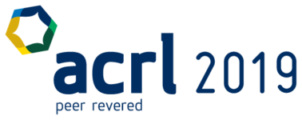Session Description
A significant number of studies have shown that students rely on consistent and risk-averse research strategies and are unmotivated to engage critically with information. In an effort to increase this motivation, an instructional design librarian incorporated elements of self-determination theory (SDT) from the field of motivation into an online information literacy module. This presentation will discuss the design and assessment of the module, including its impact on student outcomes, such as perceived autonomy and competence (components of SDT) and research assignment grade. Using an interdisciplinary approach, the session will provide evidence-based strategies for designing meaningful instruction and igniting student motivation.
Presenter(s)
 Francesca Marineo
Francesca MarineoTeaching & Learning Librarian for Online Education,
University of Nevada, Las Vegas
Francesca Marineo is the Teaching & Learning Librarian for Online Education at the University of Nevada, Las Vegas. She received her MLIS from the University of California, Los Angeles and is currently pursuing a MS in Educational Psychology from the University of Nevada, Las Vegas.

 Ximin Mi
Ximin Mi Alison Valk
Alison Valk Clare Withers
Clare Withers Diana Dill
Diana Dill David Nolen
David Nolen Sheeji Kathuria
Sheeji Kathuria Christine Iannicelli
Christine Iannicelli Jenifer Hoffman
Jenifer Hoffman Kerry Walton
Kerry Walton